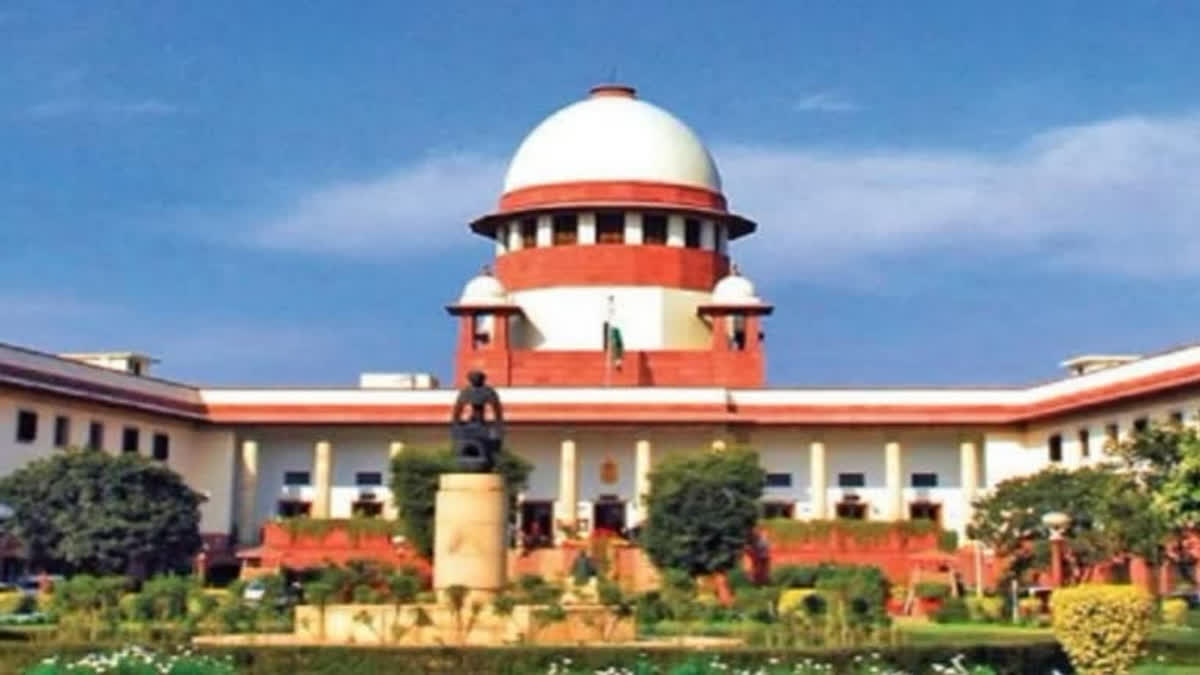New Delhi: The Supreme Court said that the right to enjoy possession of any forest land can't be limited to Adivasis and other forest dwelling communities, as forest communities do not only consist of people from recognised Adivasi and other backward communities, but also other groups residing on the said land.
A bench comprising justices Krishna Murari and Ahsanuddin Amanullah said, “The right to enjoy possession of any land notified under Section 4 of the Forest Act is not only limited to Adivasi communities and other forest dwelling communities, but also based on proof of residence and date of original possession. If the right to inhabit the said lands is not restricted only to certain communities, how can the right to be heard on such claims be restricted to the same”.
The top court said forest communities not only consist of people from recognised Adivasi and other backward communities, but also other groups residing on the said land. “These other groups, who do not get recognition under the law as a forest dwelling community due to several socio-political and economic reasons, are also an integral part of the said forest communities and are essential to their functioning”, it said.
Also read: SC reprimands Faridabad forest land encroachers
The bench said there can also be several instances of people ancestrally being forest dwellers, however, due to lack of documentation, they are not able to prove the same. The bench said, “This right to be heard, in our opinion, must be granted to all claiming possession of the subject land, and the substantial right of possession can be granted or denied during the said hearing, by the competent authority, that is to say, the right to be heard must be enjoyed by all, and the right to possess, must be enjoyed by those who have a legitimate claim”.
The top court set aside the Allahabad High Court's judgment delivered on February 4, 2013, directing the eviction of Hari Prakash Shukla and others from the forest land. The top court addressed the issue of whether its previous judgment in 'Banwasi Seva Ashram vs State of Uttar Pradesh' (1986) is only applicable to SC/ST and OBC communities.
In this case, certain Adivasi communities inhabiting the land were being evicted from their homes on grounds of the land being subject to Section 4 notification under the Forest Act. The apex court explained that it had then held that the said inhabitants had a right for their claims to be heard by the forest officer, and it was the forest officer, who had the power to go into the merits of the case and decide the claims of the inhabitants. “The object of such judgment, in our opinion, is to further the cause of substantive justice, and to ensure that every party with a valid claim over the notified land is heard in detail, and no arbitrary power to evict local inhabitants is given to the state”, noted the top court.
The top court further stated, “While we are aware of the fact that the appellants herein are not from a backward community and nor do they claim to be so, however, the aforementioned Banwasi judgment, if interpreted in a narrow manner only to benefit certain recognised forest communities, would cause a great deal of harm to other communities”.



